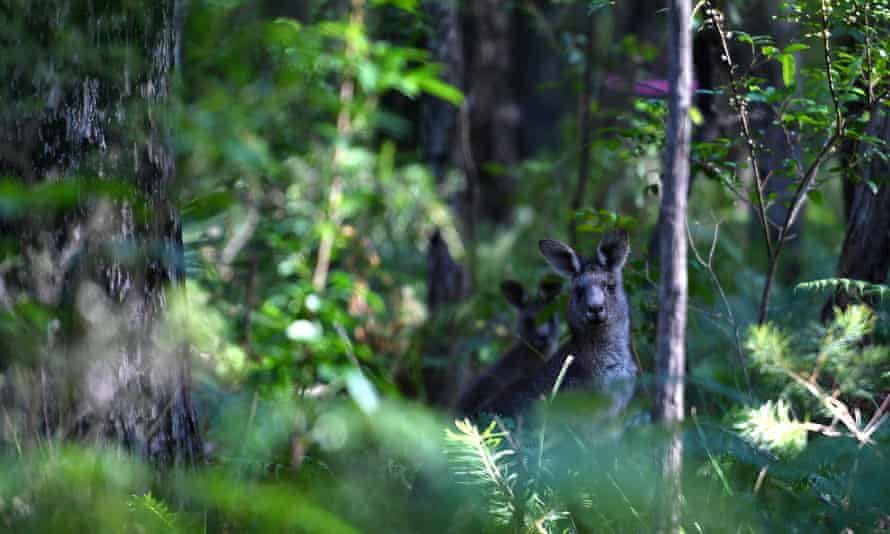Extract from The Guardian
Senator says government still hasn’t addressed concerns crossbenchers raised last year, while conservationists call for action on review’s recommendations

Last modified on Sun 31 Jan 2021 06.02 AEDT
A key independent senator says he will not support a government plan to shift environmental approval powers to the states before the Coalition responds to a “scathing” review of conservation laws.
Rex Patrick said the final report of the review into the Environment Protection and Biodiversity Conservation (EPBC) Act was damning about the state of systems meant to protect Australia’s wildlife.
“I’m not going to agree to blindly passing pieces of legislation,” Patrick said. “I want to see a plan for how the review recommendations are going to be implemented, including timeframes.”
The Morrison government released the final report from the once-in-a-decade review of the laws on Thursday, three months after receiving it from the review’s chair, the former competition watchdog head Graeme Samuel.
The government is yet to release its response to the report. Samuel included several recommendations that he said should be implemented immediately.
The environment minister, Sussan Ley, has indicated the government will continue to try to pass legislation that would clear the way for the transfer of environmental approval powers to state and territory governments.
A majority of senators signalled they would block the bill last year and Patrick was among a crossbench group that tabled a dissenting report to an inquiry examining the legislation.
Patrick said on Friday that the government still had not addressed key concerns outlined in that dissenting report, which called for documents detailing the agreements between the states and the commonwealth as well as how state authorities would be accredited with the commonwealth to make decisions on its behalf.
He added that Samuel’s final report made clear there were multiple recommendations – including legislated national environmental standards and the creation of an office of compliance to enforce the law – that should be a priority alongside the proposal for environmental deregulation.
“The minister would have to put up a very good case as to why she would take a different approach to that recommended by Samuel,” Patrick said.
Eighteen of the review’s 38 recommendations contained items Samuel deemed to be urgent.
Those include adopting the set of legally-binding national environmental standards written by Samuel and a committee working with the review, the creation of an office for environmental compliance and enforcement, amendments to address inconsistencies within Australia’s environmental laws, reforms to give Indigenous Australians a greater say in environmental decision-making, and immediate changes to national policy on the use of environmental offsets.
Samuel concluded that successive governments had failed for 20 years to properly implement environmental laws and the country’s wildlife was suffering because of it.
Guardian Australia put a series of questions to Ley on Friday. These included whether the government would commit to adopting the recommendations Samuel said required immediate action, whether it would put legislation to parliament for the creation of national standards, when it intended to release its response to the report, and whether it would adopt the same standards as proposed by Samuel in the report.
Ley answered none of these questions.
In a statement, a spokesperson said the report had been released ahead of the statutory deadline and the minister had committed to working through “the detail of the report with stakeholders and has begun that process”.
“In line with the position of all state and territory leaders expressed at national cabinet, the minister will continue to move to a single-touch approval process with bilateral agreements, consistent national standards and assurance functions,” the spokesperson said.
“These will create a necessary framework identified in the report and will, in the first instance, reflect the current EPBC Act. Consistent with Professor Samuel’s report, these will be further developed in the future.”
Nicola Beynon, of the Humane Society International (HSI), said Samuel had recommended a balanced set of standards following a year of consultation with scientists, environment and business groups.
“While HSI has been calling for stronger standards, anything less than the standards Professor Samuel proposes will take environmental protection backwards in this country,” she said.
Suzanne Milthorpe, the environmental laws campaigner at the Wilderness Society, said the organisation had been looking “for a sign, any sign” that the government was serious about addressing the decline of Australia’s plants and animals and was still waiting.
“The Samuel report makes it unequivocally clear that if we don’t change direction, the current decline and deterioration of Australia’s national icons will continue,” she said.
“The Morrison government has had this warning for three months. How much longer will we have to wait for a serious response?”
WWF-Australia’s chief conservation officer, Rachel Lowry, said the government should deal with Samuel’s recommendations as a complete package.
“We’re concerned that if the government gets a win on its streamlining bill in February or March, then we won’t see progress on other essential reforms. A piecemeal approach is risky and a potentially damaging way forward,” she said.
“Their reluctance to strengthen standards and ensure independent enforcement as the first step of reform is worrying.”
No comments:
Post a Comment